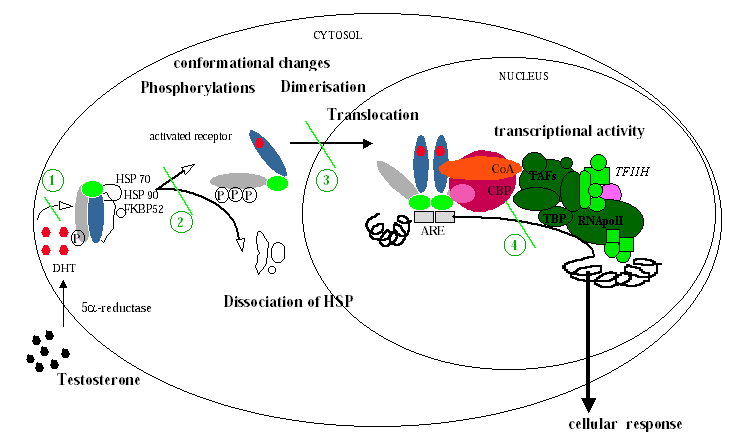Multiple Sclerosis and Irrational Exuberance
Multiple sclerosis (MS) is fascinating illness that can range from mild annoyance to debilitating nightmare. The frightening nature and unclear cause of the disease makes it a magnet for questionable medical therapies (i.e. quackery). A piece published last week in (surprise!) The Huffington Post helps fuel the fires of suspicion and paranoia while failing to shed any light on the future of...

Endocrine disruptors—the one true cause?
A common theme in alternative medicine is the “One True Cause of All Disease”. Aside from the pitiable naivete, it’s implausible that “acidic diet”, liver flukes, colonic debris, the Lyme spirochete, or any other problem—real or imagined—can cause “all disease” (in addition to the fact that most of these ideas are intrinsically mutually exclusive). One of the popular new ideas in this...
Medical Marijuana: are we ready?
Cannabis has been used recreationally and medically for centuries. Despite long experience, relatively little is known about the risks and benefits of its use as a medication. A considerable portion of our ignorance can be attributed to government discouragement of cannabis research. Searching the NIH website brings up many studies of both cannabis abuse and cannabis as a therapeutic agent, but most...
Journalist fails but science wins during flu pandemic
The Atlantic has a monumentally horrible article up about flu vaccination which has been buzzing around our bloggy back channels. There has been some good science reporting out there lately, but this ain’t it. I was hoping one of the best public health blogs would jump on this, and jump on it they did. It is a terrific example of how to...
The wild Weil world of woo
Dr. Weil is often seen as the smiling “mainstream” of alternative medicine. He’s a real doctor (unlike, say, Gary Null), and much of what he advocates is standard and uncontroversial nutritional advice. But Weil illustrates the two biggest problems with so-called alternative medicne: once you’ve decided science is dispensible, the door is open to anything, no matter how insane; and no matter...
Science-based medicine and Eurocentrism
A reader sent me an interesting post from her own blog. It’s well-written, compelling, and betrays an exceptional intelligence. It’s also completely wrong. The piece is called, “Bias, Racism, and Alternative Medicine”, an intriguing title. The first part tries to establish that “Western medicine” in one of many ways of understanding health and disease. She starts with some personal anecdotes—always interesting, rarely...
Medicine is hard and should be practiced with caution
It’s tempting to think that the practice of medicine should be simple and intuitive. Unlike other sciences, we all have access to the basic materials—ourselves. We feel that because we are intimately familiar with our bodies, we know a lot about how they work. Unfortunately, it’s a little more complicated than that. The biochemical processes walking around in this sack of meat...
Petit canard, grand canard
The flu pandemic of 1918 was horrific. Millions of people died (by some estimates 4% of the world’s population), and the medical establishment worked feverishly to find a cause and a treatment. There were many dead-ends in the search for the cause of the flu. One of the most enduring errors was the attribution of the pandemic to a bacterium called Haemophilus...
The Huffington Post is at it again
As many of our readers know, there are plenty of websites devoted entirely to fake medicine. Sites such as whale.to and NatrualNews are repositories of paranoid, unscientific thinking and promotion of dangerous health practices. Thankfully, they are rather fringe (but not fringe enough). More mainstream outlets print some pretty bad stuff, but it’s usually just lazy reporting and not a concerted, organized...
CAM and Fibromyalgia
One of the common themes regarding alternative medicine is the reversal of normal scientific thinking. In science, we must generally accept that we will fail to validate many of our hypotheses. Each of these failures moves us closer to the truth. In alternative medicine, hypotheses function more as fixed beliefs, and there is no study that can invalidate them. No matter how...

